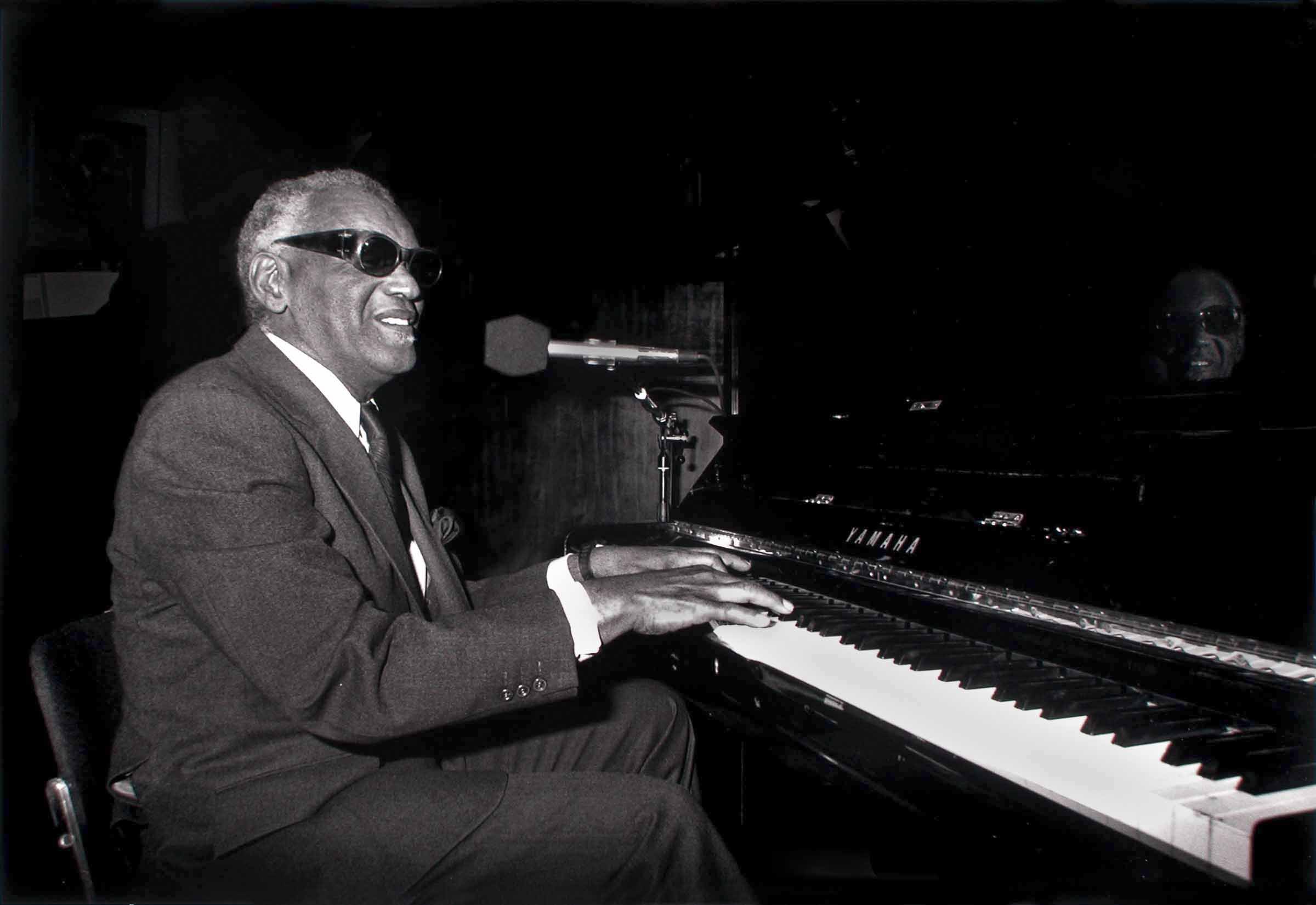When you think of soul music, one name always comes to mind—Ray Charles. He wasn’t just a singer or a pianist; he was a force of nature who transformed the music world. Known as the "Father of Soul," Ray Charles broke boundaries, blending genres, and created a sound that still resonates today. In this article, we’ll dive deep into the life, legacy, and influence of this legendary artist.
Ray Charles wasn’t just about music; he was about emotion, passion, and breaking barriers. His ability to combine gospel, blues, jazz, and country into a single sound revolutionized the music industry. People often talk about "genius" in music, but with Ray Charles, it wasn’t just talk—it was reality.
This article will take you on a journey through the highs and lows of Ray Charles' life, exploring his impact on the music world and the lessons we can learn from his incredible story. So grab your headphones, press play on some Ray Charles classics, and let’s get started.
Read also:Temporary Replacement Part 3 The Ultimate Guide You Need Right Now
Table of Contents
- Biography: A Glimpse into Ray Charles' Life
- Early Life: The Roots of Genius
- Musical Journey: From Obscurity to Stardom
- Style and Influence: The Sound That Changed Everything
- Blindness and Challenges: Overcoming Adversity
- Hit Songs: The Tracks That Defined an Era
- Legacy: The Impact That Lives On
- Awards and Achievements: Recognizing Genius
- Personal Life: Beyond the Stage
- Conclusion: Celebrating a True Icon
Biography: A Glimpse into Ray Charles' Life
Let’s kick things off by talking about the man himself. Ray Charles Robinson, better known as Ray Charles, was born on September 23, 1930, in Albany, Georgia. His life wasn’t easy from the start, but that’s what made him who he was. Growing up in a poor family, Ray faced challenges early on, but he never let them define him. Instead, he used them as fuel to create something extraordinary.
By the time he was six years old, Ray had already lost his sight due to glaucoma. But instead of letting this setback stop him, he embraced music as his way of seeing the world. He learned to play piano by ear and eventually mastered multiple instruments. His determination and passion for music became the foundation of his incredible career.
Biographical Data
| Full Name | Ray Charles Robinson |
|---|---|
| Date of Birth | September 23, 1930 |
| Place of Birth | Albany, Georgia, USA |
| Occupation | Singer, Songwriter, Pianist |
| Years Active | 1947–2004 |
| Date of Death | June 10, 2004 |
Early Life: The Roots of Genius
Ray Charles’ early life was marked by hardship and resilience. Born into poverty, he grew up in Greenville, Florida, where he learned the value of hard work and perseverance. His mother, Aretha Robinson, played a crucial role in shaping his character. She encouraged him to pursue music despite his blindness, telling him, "You don’t have to see to dream."
At the Florida School for the Deaf and the Blind, Ray honed his musical skills. He learned classical music theory, composition, and how to read Braille music. By the time he was a teenager, he was already performing in local bands, laying the groundwork for what would become a legendary career.
Musical Journey: From Obscurity to Stardom
Ray Charles’ journey to stardom wasn’t an overnight success. He started out playing in small clubs and bars, gradually building a reputation as a talented pianist and singer. In the early 1950s, he signed with Atlantic Records, which became the launching pad for his career.
His breakthrough came with hits like "I Got a Woman" and "What’d I Say." These songs weren’t just chart-toppers; they were cultural phenomena that redefined what soul music could be. Ray’s ability to blend gospel, blues, and R&B created a sound that was entirely his own.
Read also:Where Is Diana Lovejoy Now Unveiling The Life And Journey Of A Remarkable Woman
Key Milestones in His Career
- 1954: Signed with Atlantic Records
- 1955: Released "I Got a Woman," which became his first major hit
- 1959: Released "What’d I Say," a groundbreaking track that solidified his place in music history
- 1962: Released the album "Modern Sounds in Country and Western Music," which introduced country music to a wider audience
Style and Influence: The Sound That Changed Everything
Ray Charles’ style was unlike anything the world had ever heard. He combined elements of gospel, blues, jazz, and country to create a sound that was raw, emotional, and deeply personal. His voice had a way of cutting through the noise, connecting with listeners on a level that few artists could achieve.
His influence extended far beyond his own music. He inspired countless artists, from Stevie Wonder to Alicia Keys, and his legacy continues to shape the music industry today. Ray’s willingness to experiment and push boundaries set him apart from his contemporaries and cemented his status as a true innovator.
Blindness and Challenges: Overcoming Adversity
One of the most remarkable aspects of Ray Charles’ life was how he overcame his blindness. Losing his sight at such a young age could have been devastating, but Ray turned it into a source of strength. He once said, "I don’t see with my eyes; I see with my heart." This mindset allowed him to focus on what truly mattered—his music.
His ability to adapt and thrive in a world that often overlooked people with disabilities is a testament to his resilience and determination. Ray Charles didn’t just survive; he thrived, becoming one of the most celebrated musicians of all time.
Hit Songs: The Tracks That Defined an Era
No discussion about Ray Charles would be complete without mentioning his iconic hits. Songs like "Georgia on My Mind," "Hit the Road Jack," and "Unchain My Heart" have become timeless classics that continue to resonate with audiences worldwide.
These tracks weren’t just about catchy melodies or impressive vocals; they were about storytelling. Ray had a way of conveying emotion through his music, making listeners feel every note he played and every word he sang.
Top Hits by Ray Charles
- "Georgia on My Mind" (1960)
- "Hit the Road Jack" (1961)
- "Unchain My Heart" (1961)
- "What’d I Say" (1959)
- "I Can’t Stop Loving You" (1962)
Legacy: The Impact That Lives On
Ray Charles’ legacy extends far beyond his music. He was a trailblazer who broke racial barriers in the music industry during a time when segregation was still rampant. His performances at integrated concerts in the South during the 1960s were acts of courage and defiance, paving the way for future generations of artists.
Today, Ray Charles is remembered not only for his incredible talent but also for his contributions to civil rights and social justice. His music continues to inspire and educate, reminding us of the power of art to bring people together.
Awards and Achievements: Recognizing Genius
Throughout his career, Ray Charles received numerous accolades for his contributions to music. He won 12 Grammy Awards, including a Lifetime Achievement Award, and was inducted into the Rock and Roll Hall of Fame in 1986.
His impact on the music industry was recognized by institutions around the world, from the Kennedy Center Honors to the Grammy Hall of Fame. These honors are a testament to his enduring legacy and the profound influence he had on generations of musicians.
Personal Life: Beyond the Stage
While Ray Charles’ public life was filled with accolades and achievements, his personal life was equally fascinating. He was married twice and had 12 children, though his relationships were often tumultuous. Despite the challenges he faced in his personal life, Ray remained committed to his craft, pouring his heart and soul into his music.
In his later years, Ray became an advocate for various causes, including education and music therapy. He established the Ray Charles Foundation to support programs that help children with hearing impairments, ensuring that his legacy would extend beyond his music.
Conclusion: Celebrating a True Icon
Ray Charles wasn’t just a musician; he was a cultural icon who redefined what music could be. From his humble beginnings in Georgia to his status as a global superstar, Ray’s journey is a testament to the power of perseverance, passion, and creativity.
As we celebrate his life and legacy, let’s remember the lessons he taught us: that music has the power to heal, to unite, and to transform. So the next time you listen to one of Ray Charles’ songs, take a moment to appreciate the genius behind it. And if you haven’t already, share this article with your friends and family to spread the word about this incredible artist.
Let’s keep the spirit of Ray Charles alive by supporting music education, promoting diversity in the arts, and embracing the power of creativity in our own lives. After all, as Ray himself once said, "Music is the great uniter. An incredible force. Something that brings people together regardless of language, culture, or religion."


